EMMA (2020)
In 1800s England, a well meaning but selfish young woman meddles in the love lives of her friends.
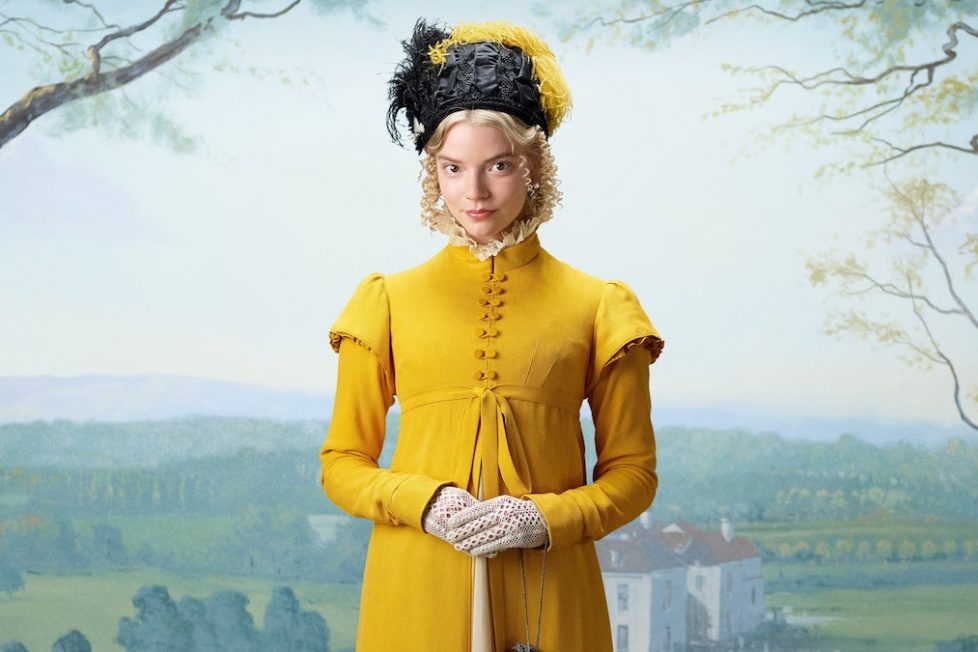
In 1800s England, a well meaning but selfish young woman meddles in the love lives of her friends.


Jane Austen’s matchmaking heroine’s been the subject of many adaptations over the years, yet this latest version reimagines Emma (Anya Taylor-Joy) and her involvement in romantic misunderstandings in a reinvigorating way.
The central conflict in Emma revolves around the lead’s naively optimistic view that, after matching her friend Miss Taylor (Gemma Whelan) with affluent businessman Mr Weston (Rupert Graves), she must help others find true love. Emma begins her calling with disastrous results concerning new friend Harriet Smith (Mia Goth), and over the course of her matchmaking comes to realise her own love story.
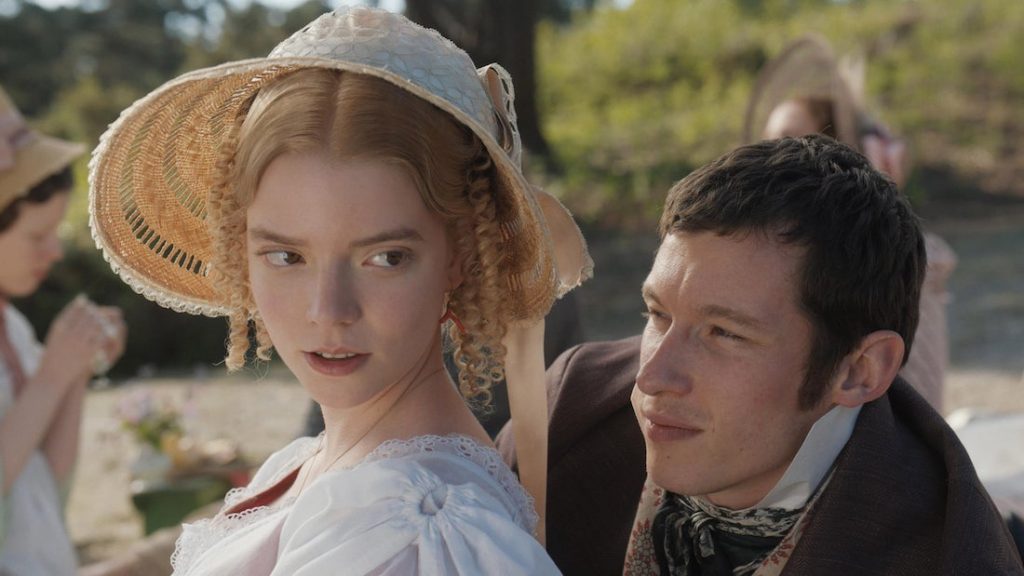
In considering Emma, my first impression is how appealing it looks. This makes sense since the director, Autumn de Wilde, is a well-regarded photographer and music video director. The visuals are mesmerising. Every shot is full of colour and texture that bring out the period-authentic costumes and props. Emma’s whimsical look offers a unique juxtaposition with the story’s serious themes of inequality, social status, and female concerns about finding a suitable man to marry.
The beautiful cinematography emphasises the differences in class status, which is important in developing Emma’s character, as well as the romantic entanglements that make up the narrative. Well-meaning but garrulous and impoverished Mrs Bates (Miranda Hart), together with her talented niece Jane Fairfax (Amber Anderson), consistently appear in muted colours with their home cast in shadows. Contrastingly, Emma and her Hartfield home are beautifully appointed and lighted at all times. The effusive colours don’t always feel “true” to the period but work to highlight Emma’s views on the lower classes of her town.
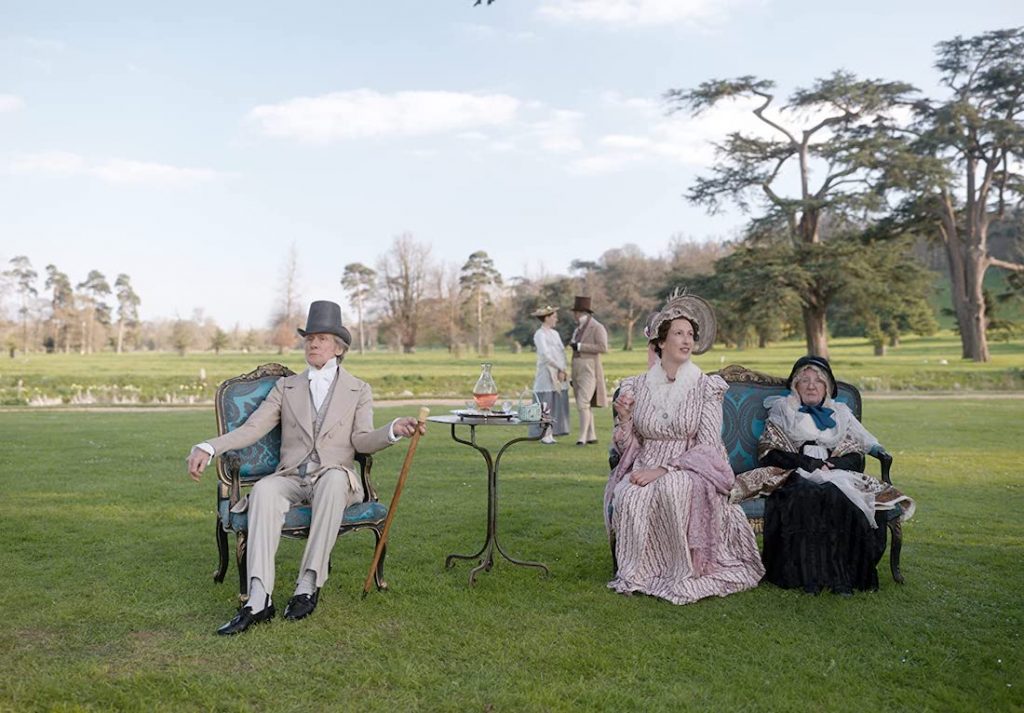
Balancing such a bright aesthetic, the ensemble supply added depth to the story by imbuing it with a dramatic edge. This adaptation stays true to the “heroine whom no-one but myself will much like” as Jane Austen once described Emma. Anya Taylor-Joy is masterful in how effortlessly she exudes Emma’s compassion and warmth, but when frustrated she switches to disapproval with a furrow of her brow and a cutting remark. It’s surprisingly easy to find Emma unlikable in this telling… and I found that to be both a highlight and a disappointment.
In focusing on Emma’s flaws and propensity to make foolish judgments, this adaptation lacks the romantic appeal of more typical Austen adaptation. Emma seems less thoughtless and more calculating, which detracts from the emotional heart of her friendships. But again, this is what Austen intended for the character, so I applaud this adaptation for showcasing it. Austen aficionados may find it difficult to embrace this latest Emma, but it respectfully augments the Regency author’s brilliance in crafting a story where the meddling heroine consistently makes mistakes and isn’t very perceptive. Moments when Emma realises her errors aren’t glossed over either, as the director makes sure audiences feel Emma’s mortification.
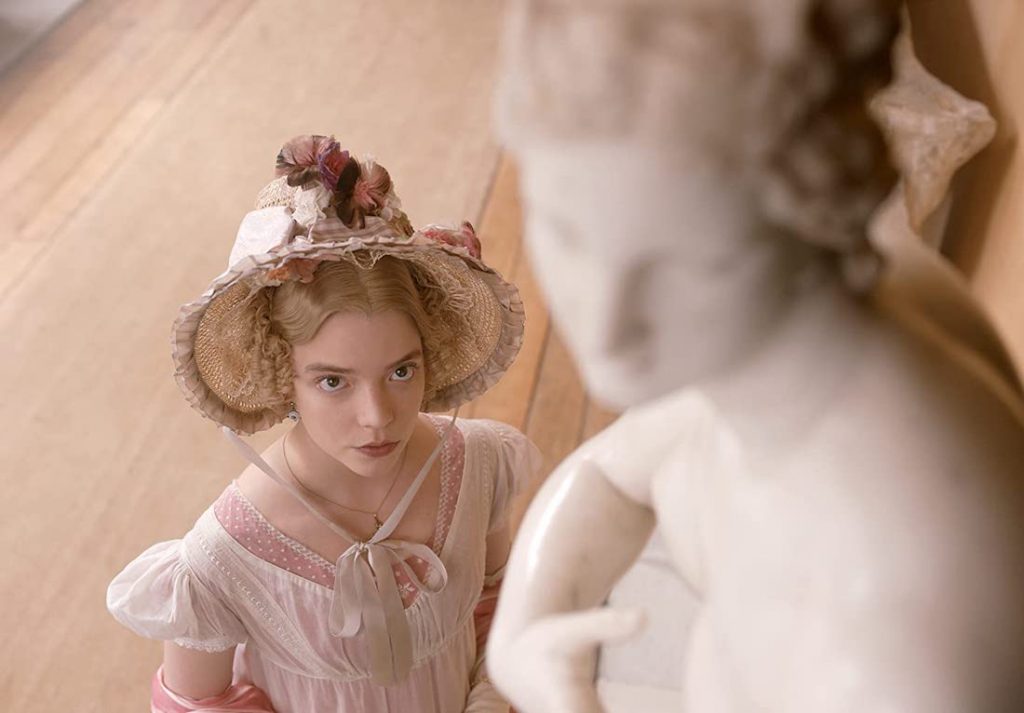
Mr Knightley (Johnny Flynn) works as Emma’s conscience and eventual romantic interest, and his moral and rational thinking fuels scenes where he and Emma argue over her actions and perception of other people’s emotions. This does heighten the drama but I found the gradual development of their romance was marred by their sparring. I know this seems unlikely since a hate-to-love romance is a popular trope, but I missed the passion of their connection.
It comes as almost a surprise when Mr Knightley gets so frustrated by his feelings for Emma that he takes off his waistcoat and shoes and lays on the floor in anguish! The director further conveys that this isn’t the typical Austen romance when Emma gets a nose bleed during Mr Knightley’s proposal. It’s such a unique choice and one I’m not sure I like, but I do admire the way the practical and everyday tempers the fairy tale and idealistic parts of their love story.
And that’s the crux of this adaptation. While Austen’s depiction of character flaws was meant to be satire, traditional interpretations of Austen’s book augments the romantic aspects. However, this film shies away from a traditional take on Emma by emphasising Emma’s selfish manipulations, the downfalls of chasing social status, and the banality of love—all wrapped up in a colourful and composed picture. I found the interpretation to be stiffly formal, humourous, and emotionally unappealing at various times… and tet I loved how complex this made the story and how it focused on Austen’s satire. Despite having excised many book scenes and characters, this may be the most accurate film version of Emma to date.
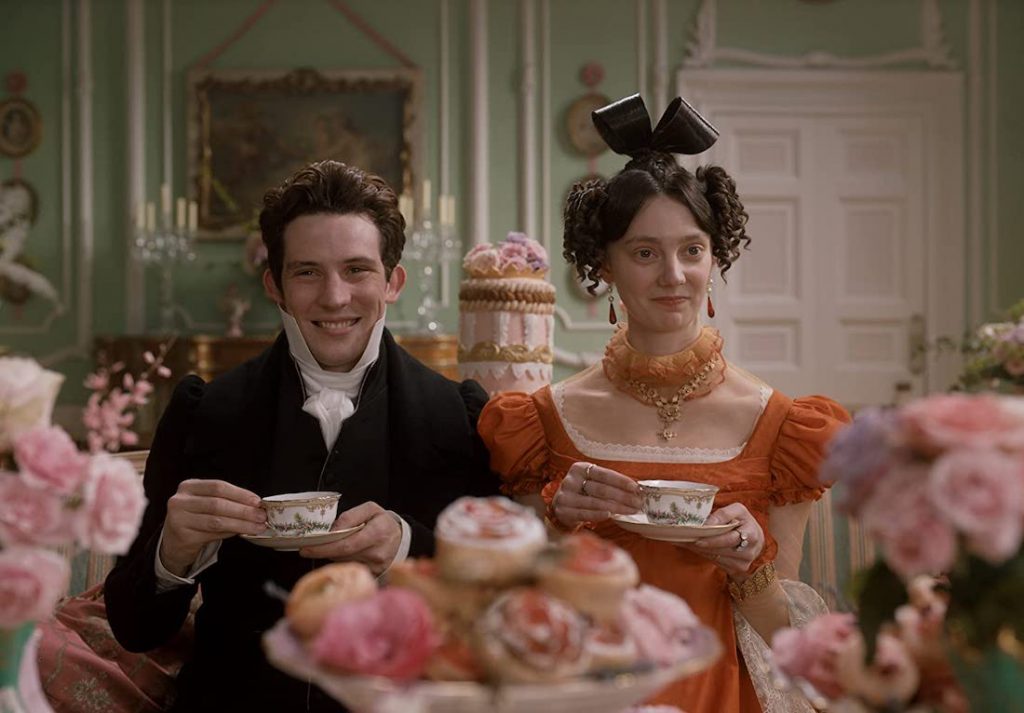
Another unconventional aspect is the soundtrack by Isobel Waller-Bridge (sister of Fleabag’s Phoebe) and David Schweitzer. The expected wistful instrumental pieces are replaced by folk songs with choral voices. It’s sometimes jarring to hear such tunes play over party scenes and countrysides walks, but it’s intriguing to have the music highlight the setting of a small English rural town. It’s a further attempt to bring Austen’s world to pragmatic life. And the fact the actors portraying Mr Knightley and Jane Fairfax (Emma’s beautiful and accomplished foil) feature in the soundtrack only adds to the fun.
Emma is an unexpectedly profound take on the British period drama. It draws you in with beautiful cinematography and the formal attitudes and conventions of Georgian-Regency England… but simmering underneath those trappings isn’t a provocative, passionate, or even feminist love story, but an intelligent and ironic examination of an inconsiderate heroine, the unpredictable nature of love, and the emptiness of social status.
UK | 2020 | 124 MINUTES | 1.85:1 | COLOUR | ENGLISH

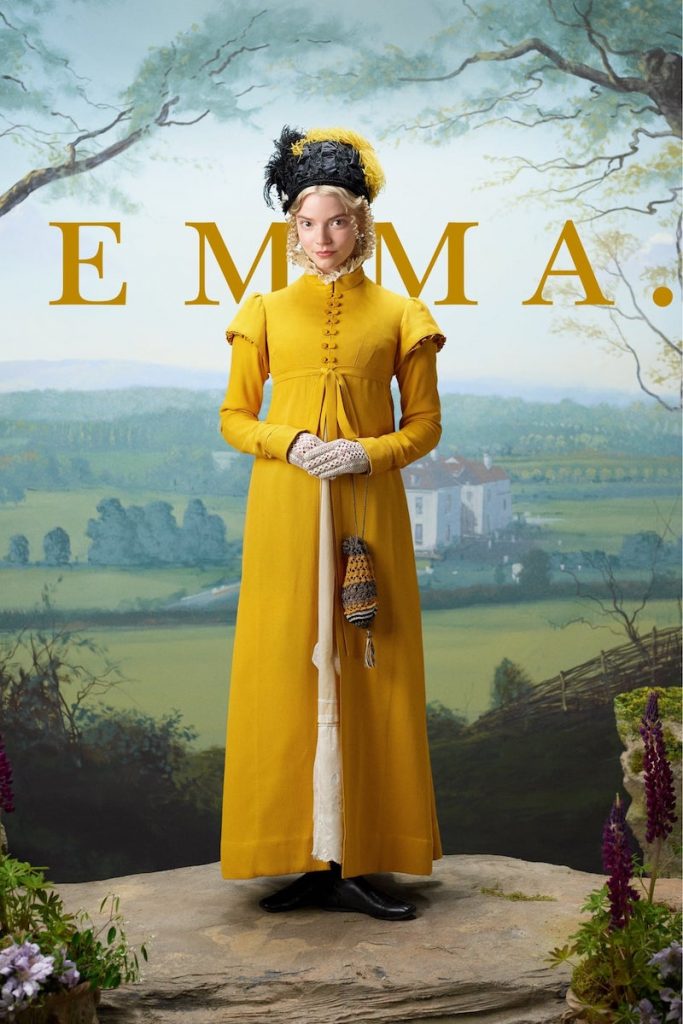
director: Autumn de Wilde.
writer: Eleanor Catton (based on the novel by Jane Austen).
starring: Anya Taylor-Joy, Johnny Flynn, Bill Nighy, Mia Goth, Miranda Hart, Josh O’Connor & Callum Turner.
